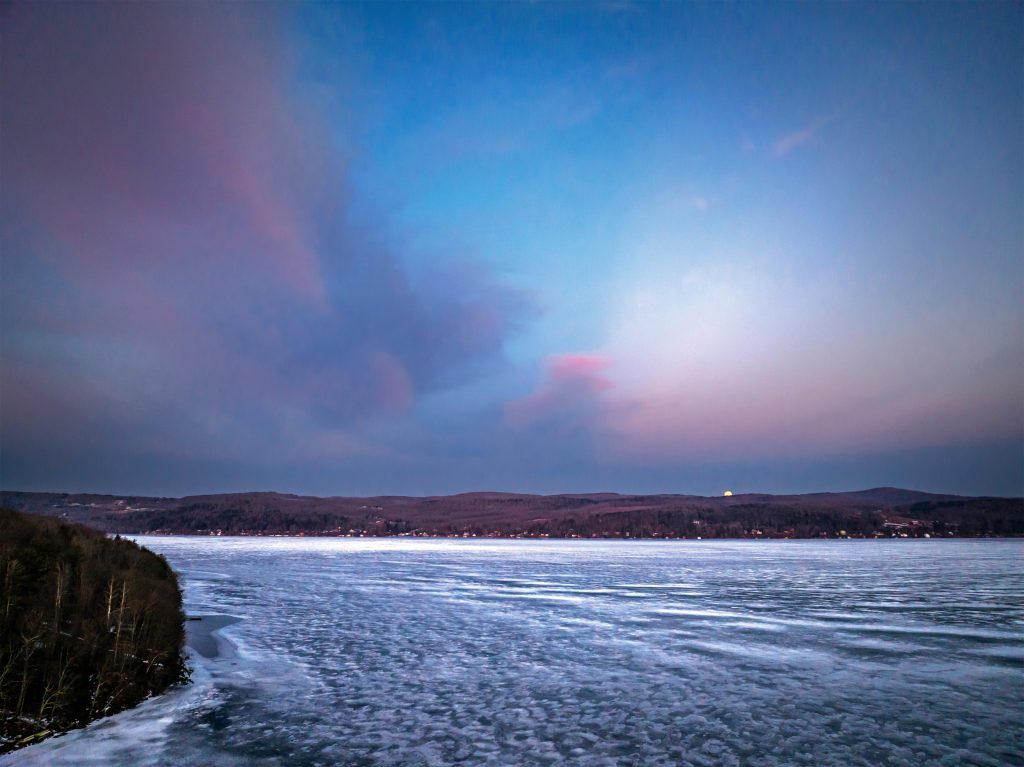
Moon Over Glimmerglass
COOPERSTOWN—Photographer Bill Miller sent us this dramatic shot of the moon setting behind Otsego Lake’s west side during an early-morning sunrise. “I love how the ice looks three-dimensional,” Miller wrote in an e-mail. According to a report on the Otsego Lake Association website titled “Otsego Lake Association Winter Update 2022,” records dating back to the 1840s show that the lake has been officially closed by ice every year—until the 21st century. “Now, in just a relatively short period of time, we’ve seen three of the past twenty winter seasons with open waters replacing inches or feet of solidly frozen ice,” the report reads. This year makes four. SUNY Oneonta Biological Field Station Research Support Specialist Holly Waterfield said 2024 is the first year there has been open water on the lake for the majority of the time. “We haven’t seen this before,” Waterfield said.

